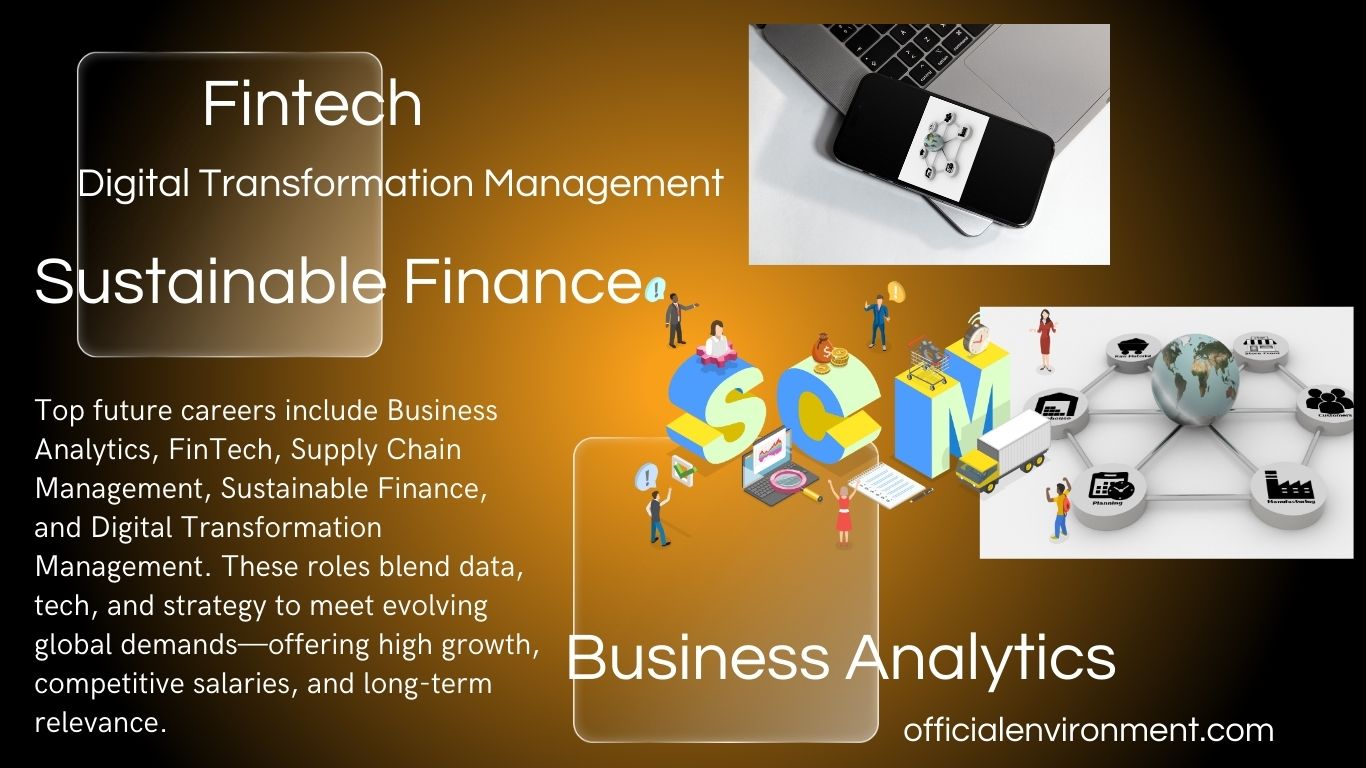Think back to 10 years ago. If you had completed a computer science degree then, and worked hard to develop the right skills, you could be earning 90,000.00 USD annually today with just 6–7 years of work experience. The same applies if you had chosen a career in investment banking.
But let’s not dwell on the past. What’s more important is where the future is headed. Which degrees and skills will dominate the job market between 2030 and 2035? What should you study now to excel in those high-demand fields later?
This blog discovers into those question’s answer. And if you happen to be reading this post in 2030 or beyond, let me know how accurate these predictions turned out to be!
We’ll explore these fields through the lens of Arts, Commerce, and Sciences, making this relevant for students of all backgrounds. Plus, with the rise of interdisciplinary careers, switching fields is easier than ever. Whether you're 18 or 40, it’s never too late to realign your career path toward future-proof industries.
Top Carriers of the Future
1. Business Analytics
In a world driven by data, companies increasingly rely on business analysts to turn raw information into actionable strategies. This field combines data science, statistics, and management into one powerful package.
While AI tools like ChatGPT can handle heavy computational tasks, there’s still a massive gap when it comes to human interpretation, decision-making, and strategy. Business analysts are the ones bridging that gap, and their skills will remain indispensable for years to come.
2. FinTech and Financial Engineering
From cryptocurrency systems to algorithmic trading, FinTech is rewriting the rules of the financial world. Financial engineers build algorithms capable of analyzing decades of market data in minutes, making them a critical part of the trading and investment landscape.
Even now, FinTech professionals often out-earn traditional investment bankers, and demand for their expertise is set to grow even further. If you’re intrigued by the mix of finance, tech, and innovation, this could be your golden ticket to a high-paying career.
3. Supply Chain Management
Supply chains are the backbone of global commerce, and the field is only growing. By 2030, the supply chain industry is expected to expand by 30%, driven by globalization and e-commerce.
But here’s the catch: this field is incredibly competitive, requiring top-notch analytical and problem-solving skills. The rewards, however, are worth it—high-level professionals in supply chain management command impressive salaries worldwide.

4. Sustainable Finance
As sustainability becomes a priority across industries, sustainable finance is emerging as a vital career path. Roles like ESG consultants (Environmental, Social, and Governance) and green investors are at the forefront of aligning profitability with environmental responsibility.
With the sustainability sector growing at a projected rate of 9% annually through 2030, this is a field where finance meets purpose.
5. Digital Transformation Management
Although countries like India have rapidly embraced digital transformation, many businesses across the globe still lag behind. This creates opportunities for professionals who can lead digital adoption projects and help organizations leverage technology for growth.
This role demands a mix of technical knowledge, project management expertise, and leadership skills—making it both challenging and rewarding.
For Engineering and Tech Students
1. Renewable Energy Engineering
As countries push for net-zero carbon emissions by 2050, renewable energy will become one of the most critical sectors. Jobs like solar energy consultants, wind turbine engineers, and green project managers will be in high demand.
With the increasing urgency to combat climate change, this field is not just a career choice—it’s a chance to make a real difference.
2. Bio-Medical Engineering
Healthcare and technology are converging, and biomedical engineering is at the center of this revolution. From designing advanced prosthetics to developing wearable medical devices, this field is transforming how we approach health and wellness.
AI is already assisting doctors with diagnostics, allowing biomedical engineers to focus on solving more complex medical problems, like cancer research or regenerative medicine.

3. Quantum Computing
Although still in its early stages, quantum computing is a game-changing field. It has the potential to revolutionize industries like cybersecurity, logistics, and drug discovery.
For those with a passion for physics and computer science, this is one of the most intellectually rewarding and high-potential fields to explore.
Breaking Down Barriers: A Future of Interdisciplinary Careers
The future will blur the lines between Arts, Commerce, and Science. A humanities student could transition into tech, while an engineering graduate might excel in sustainable finance. Fields are becoming increasingly interdisciplinary, meaning that your educational background won’t define your future career as rigidly as it might have in the past.
If you’re under 40 years old, it’s still entirely possible to switch careers into these high-growth fields. Lifelong learning and adaptability are the keys to thriving in the dynamic job market of the 2030s.
Sustainability-Resistant Careers at Risk
As automation and technology improve, certain vocations may become obsolete. AI and robotics are reducing the demand for routine manual labor jobs such as assembly line workers and data entry clerks. Traditional print journalism and coal mining industries are declining, while self-checkouts are replacing retail cashier work. Degrees in generic business or humanities without specialization may result in limited work opportunities. Low-tech fields, such as traditional administrative roles, are also vulnerable as digitization gains traction. Overcrowded fields such as law and non-STEM education face fierce rivalry and stagnant pay. Finally, jobs that neglect sustainability may become obsolete as the emphasis switches to environmentally friendly activities.
Final Thoughts
The careers of the future demand a mix of technical expertise, creativity, and adaptability. Choosing the right path today can set you up for success in a world where industries evolve faster than ever before.
So, what do you think about these predictions? Are you already preparing for one of these fields, or planning to pivot your career? Be careful, think first and go to your way to achieve or secure your aim. Remember today’s work, If you take one step forward today, you are one step closer to your goal.






